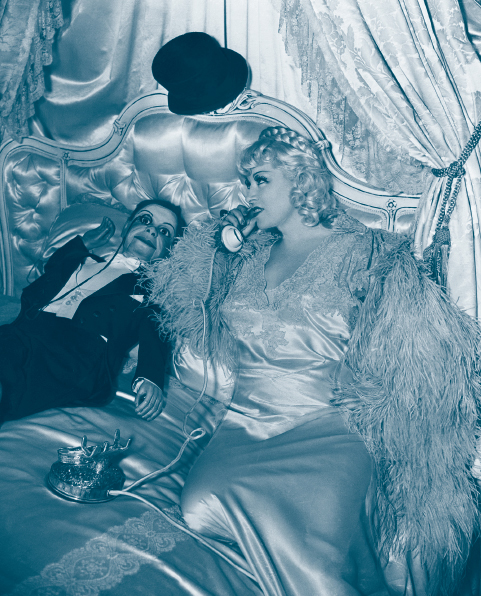Dirty Words, Indecent Speech, and Hefty Fines
Printed Page 435

Like the Supreme Court’s rulings in the Red Lion and Miami Herald cases, regulators’ actions regarding indecency in broadcasting reflected the idea that broadcasters had less freedom of expression than print media did. In theory, communication law says that the government cannot censor (prohibit before the fact) broadcast content. However, the government may punish broadcasters after the fact for indecency.
Concerns over indecent broadcast programming cropped up in 1937 when the FCC scolded NBC for airing a sketch featuring sultry comedian-actress Mae West. After the sketch, which West peppered with sexual innuendos, the networks banned her from further radio appearances for “indecent” speech. Since then, the FCC has periodically fined or reprimanded stations for indecent programming, especially during times when children might be listening. For example, after an FCC investigation in the 1970s, several stations lost their licenses or were fined for broadcasting topless radio, which featured deejays and callers discussing intimate sexual subjects in the afternoon. (Topless radio would reemerge in the 1980s, this time with doctors and therapists—instead of deejays—offering intimate counsel to listeners.)

The current precedent for regulating broadcast indecency stems from a complaint to the FCC that came in 1973. In the middle of the afternoon, WBAI, a nonprofit Pacifica network station in New York, aired George Carlin’s famous comedy sketch about the “seven dirty words” that can’t be said on TV. A man riding in a car with his fifteen-year-old son heard the program and complained to the FCC, which sent WBAI a letter of reprimand. Although no fine was issued, the station appealed on principle—and won its case in court. The FCC promptly appealed to the Supreme Court. Though no court had legally defined indecency (which remains undefined today), the Supreme Court sided with the FCC in the 1978 FCC v. Pacifica Foundation case. The decision upheld the FCC’s authority to require broadcasters to air adult programming only at times when children were not likely to be listening. The FCC banned indecent programs froM most stations between 6:00 A.M. and 10:00 P.M.